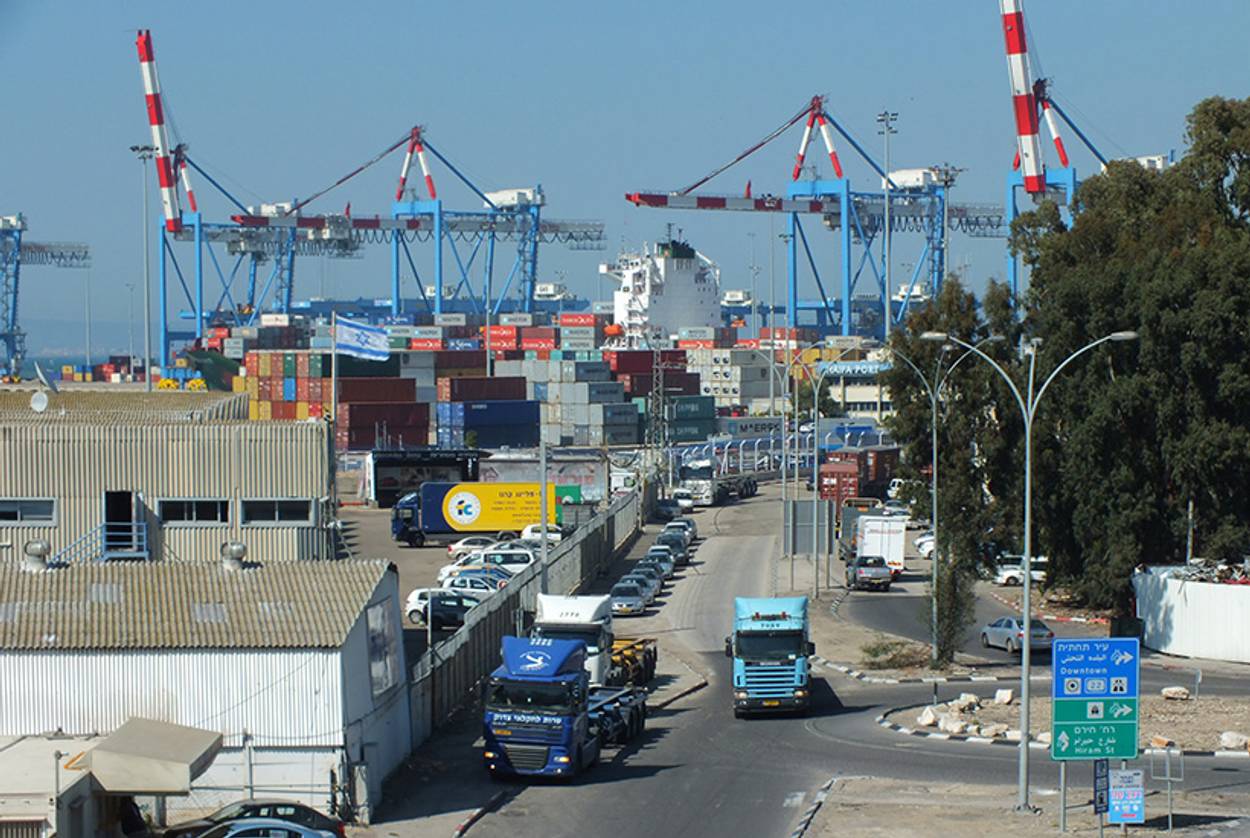Israeli Businesses, Fearing Pinch of Boycotts and Sanctions, Push Netanyahu on Peace
Bibi objected when Kerry warned about the costs of failing to make a peace deal, but business leaders hope he’ll listen




In early February, when Secretary of State John Kerry warned that Israel was at risk of facing a growing campaign of delegitimization in the absence of a peace deal with the Palestinians, the response from Israel’s politicians was swift, and fierce. “Threats to boycott Israel will not achieve their goal,” Israeli Prime Minister Benjamin Netanyahu said. Yuval Steinitz, Israel’s minister of strategic affairs, called Kerry’s remarks “hurtful,” while economic minister Naftali Bennett accused Kerry of being “a trumpet” of anti-Semitism.
But after the dust settled, Israeli officials acknowledged Kerry’s comments hardly came out of the blue. “I think he was making a descriptive statement,” Israel’s ambassador to the United States, Ron Dermer—a former economic attaché—told Time magazine.
To wit: In December, the Dutch firm Vitens announced it would stop working with Israeli water infrastructure company Mekorot because of its activities in Israeli settlements. In January, Norway’s Ministry of Finance announced it would sell its interests in construction firms Danya Cebus and Africa Israel because they build settlement homes in east Jerusalem and the West Bank. Earlier this month, Denmark’s Danske Bank blacklisted Israel’s Bank Hapoalim because it operates and funds construction in West Bank settlements.
Last month, Israel’s finance minister, Yair Lapid, warned that a partial European Union boycott could cost the country nearly $6 billion in exports. But the moves already announced amount to a soft boycott on Israeli trade—a problem dozens of companies exporting to Europe are already facing thanks to the removal of their products from stores, reduced commitments from European investors, and termination of contracts. “We’ve seen an escalation whereby Israeli companies have been targeted in spite of the fact that the relationship under discussion has nothing to do with the West Bank,” said Daniel Reisner, an attorney who specializes in international law and has seen an uptick in client consultations on export problems. “The foreign company says, ‘We know you have other operations in the West Bank, and because of that I don’t want to do business with you in Israel.’ ”
That reality has accelerated the campaign by Breaking the Impasse, a coalition of Israeli and Palestinian businesspeople. In February, the group took out highway billboards urging Netanyahu to make a deal or risk a continued rise in Israel’s cost of living. “Netanyahu is not doing enough,” said Eyal Waldman, a member of the group and CEO of Mellanox, a semiconductor and software firm based in the northern Israeli town of Yokneam. “The amount of negotiations, the people involved, and the rhythm should be faster and more concrete.”
The hope of businessmen like Waldman—who said Mellanox, with clients around the world and programmers working in Ramallah, doesn’t have serious exposure in the event of a broadened boycott campaign—is that Netanyahu, a former business strategy consultant, will be swayed by appeals to the bottom line. “Netanyahu is in many ways even more sensitive to the business community than to the settlers,” said Yaron Ezrahi, an emeritus professor of political science at Hebrew University in Jerusalem. “They give him a very good reason to redefine the vital interest of Israel.”
So far, the government is maintaining a delicate balancing act. In December, Israel and the European Union concluded months of negotiations over the terms of the Horizon 2020 agreement, which provides $95 billion in research funding to Israeli science and technology projects on condition that no money goes to institutions operating in the settlements.
But meantime, it’s in the settlements that the bite of sanctions is already being felt. Last year, the revenues of growers in the Jordan Valley’s 21 settlements dropped $29 million, a loss of more than 14 percent, after Western European supermarkets—particularly in the United Kingdom and Scandinavia—began removing settlement-grown produce from store shelves.
In the Jordan Valley settlement of Netiv Hagdud, pepper farmer Hanan Pasternak said exports to Europe have been shrinking over the past eight years, and this year he did not sell to Europe at all. “We send all our harvest to Russia,” Pasternak said. “They know we have no choice, and they kill us on prices. And the Russian market only takes extra-large peppers.”
Yet it’s the representatives of the settler movement who, at least publicly, have insisted they are less concerned with losing money than keeping land. Last week, the main settler lobby group, the Yesha Council, launched an English-language website that uses short films to lampoon Kerry and his efforts at cementing a peace agreement. And so far, the Israeli government has compensated the settlers for their losses overseas: Since 2010, when they were excluded from duties exemptions given to Israeli companies in Europe, Pasternak said that the government has covered the loss with an annual payment of 24 million shekels, or about $6.8 million.
He said he expects the government to further support his farm with reduced water prices as European sanctions begin to squeeze his revenues further. “Seventy percent of Israelis think the Jordan Valley has to remain in Israeli hands,” Pasternak said. “We expect the government to help us and take responsibility.”
***
Like this article? Sign up for our Daily Digest to get Tablet Magazine’s new content in your inbox each morning.
Daniella Cheslow is an American journalist covering the Middle East.
Daniella Cheslow is an American journalist covering the Middle East.